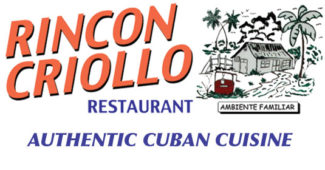 |
 Tony Moschella spent 32 years as a School Psychologist, and started University College Advisors to polish student profiles through college interest and major assessment, essay and interview prep, college list building, financial aid review and college admissions guidance. Cell: 516-443-5192. www.UniversityCollegeAdvisors.com UniversityCollegeAdvisors@gmail.com |
| As students begin their college search efforts and explore the vast array of schools available, the task of forming a suitable college list seems daunting. According to the National Center for Education, there are presently over 3,000 four-year colleges and universities in the United States. How does an eager student begin to investigate suitable matches for their interests, aspirations and abilities? Although there are few shortcuts to the detective work that leads to a clear and informed college search, there is an overlooked source that can provide immediate guidance: college athletic conferences. Athletic conferences at all competitive levels seek to combine schools that have commonalities with respect to school size, academic standards, scholarship fulfillment, and geographic region. Upon identifying a particular school that catches a student’s interest, reviewing other schools within the same athletic conference can yield additional good fit matches. Athletic conferences combine schools that often share a common profile in terms of the caliber of students they seek. While there is some variability across athletic conferences based on emphasis in the sports department, there is an alliance that is created with common goals that will allow conference members to compete on a level playing field. Thus, when students target a school on their radar, they are able to survey similar schools in that school’s athletic conference to round out a fairly uniform list of schools that they might thrive in. Let’s examine this strategy closer and learn how the original athletic conferences were established. Can anyone guess the first sport that jump-started the initiative to create a unified college athletic conference? If you guessed rowing you would be right on target. The first formal athletic league involving eventual Ivy League schools (or any US colleges, for that matter) was created in 1870 with the formation of the Rowing Association of American Colleges. Later on in 1895, Cornell, Columbia, and Penn founded the Intercollegiate Rowing Association, which remains the oldest collegiate athletic organizing body in the U.S. Subsequently, in 1945 the presidents of eight schools (dubbed the “Ivy” Schools) signed the first Ivy Group Agreement, which set academic, financial, and athletic standards for their football teams. It wasn’t until 1954 that the NCAA formalized a three-tiered division format which led to the creation of athletic conferences whose members shared common interests, geographic regions, and similar financial commitments to athletics. Using college athletic conferences as a reference point for consideration quickens the process of isolating appropriate matches for a student. A conference search does not eliminate detective work, it simply shortens the time and effort needed to survey a related collection of schools. Keep in mind, there are many school features that help to develop and maintain a student’s desire to attend. Add athletic conferences to your tool kit to bring about a more efficient college search. |
|












 20 lucky winners will win $500 each in prizes totaling $10,000.
20 lucky winners will win $500 each in prizes totaling $10,000. 